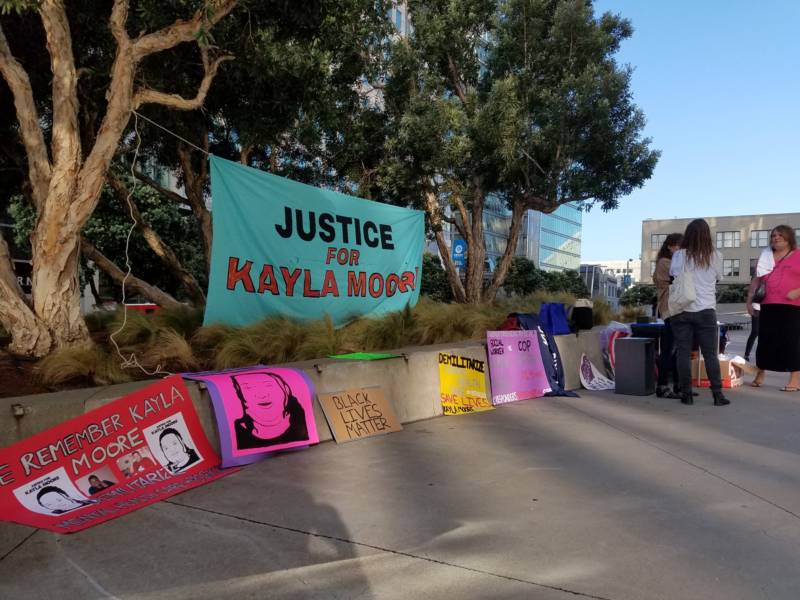A federal judge has allowed part of a wrongful death lawsuit to move forward, filed on behalf of a transgender woman who died in a struggle with Berkeley police in 2013.
Kayla Moore's family sued the city and eight Berkeley police officers for causing Moore's death by using excessive force and not taking Moore's paranoid schizophrenia into account when attempting to take her into custody.
U.S. District Judge Charles Breyer dismissed the excessive force complaint but is allowing a claim to go before a jury that officers violated the Americans with Disabilities Act by failing to account for Moore's mental illness. Berkeley was asking the judge to dismiss the entire lawsuit based on lack of evidence.
"[Moore's family] claims that the officers killed Moore by using excessive force. As an initial matter, the officers argue that there is no evidence they caused Moore’s death, and so there can be no claim for excessive force. They are wrong," Breyer wrote in his order, which cites another landmark case he presided over that applied the ADA to police use-of-force cases.
Kayla Moore's roommate called police on Feb. 12, 2013, to tell them that Moore was on drugs, in the midst of a psychotic episode and needed to be hospitalized. Moore had a history of paranoid schizophrenia and drug use and had previously been taken into protective custody for mental evaluation several times, according to Breyer's order and other filings in the case.
Moore's initial conversation with Officer Gwendolyn Brown was cordial, but it didn't make sense.

